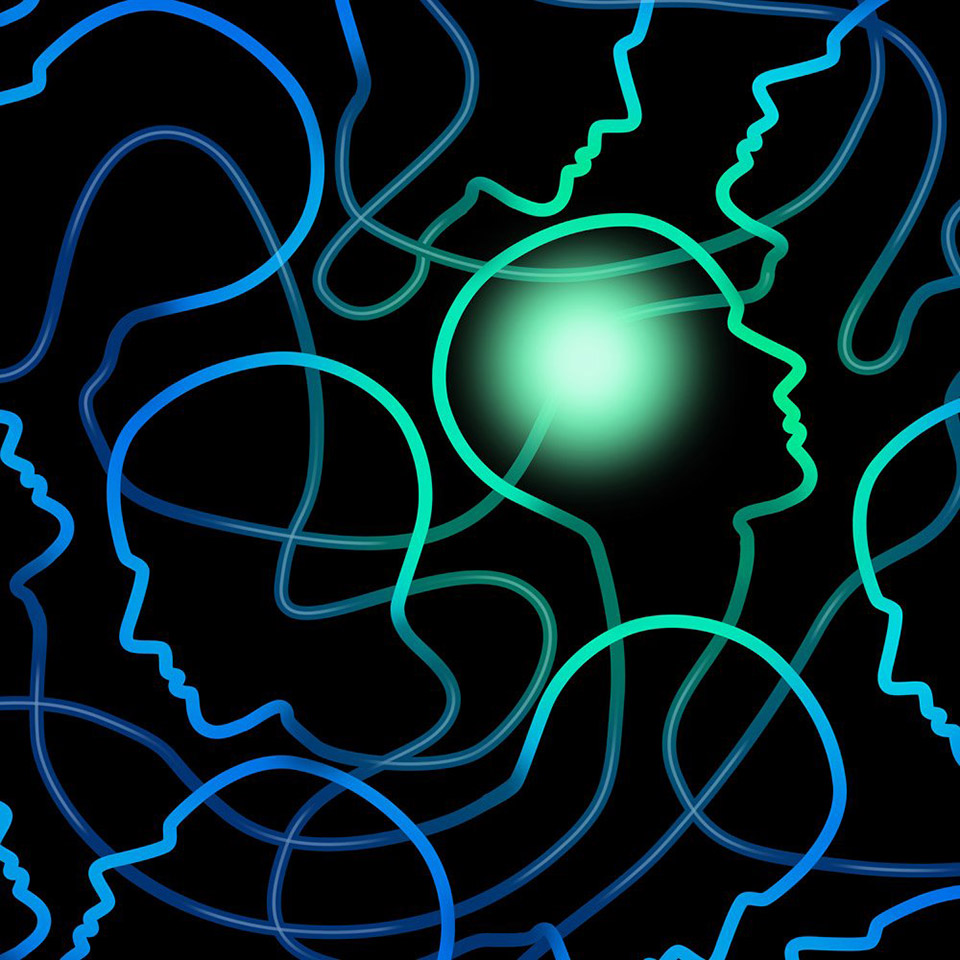Psychology explores the human mind and behaviours to better understand the intricate processes that influence how we think, feel, and act. In this article, we’re going to explore the various branches of psychology and also showcase the many benefits to studying it.

The Different Branches of Psychology
Psychology can be divided into several major branches:
Cognitive Psychology
Cognitive psychology investigates mental processes like attention span, memory, perception, and problem-solving. It seeks to understand how individuals acquire, process, and use information, providing insights into human thought and decision-making.
Social psychology examines how individuals' thoughts, feelings, and behaviours are influenced by social interactions and the presence of others. It explores topics such as attitudes, conformity, interpersonal relationships, and group dynamics, shedding light on social influence and behaviour.
Developmental Psychology
Developmental psychology focuses on the study of human growth and development across the lifespan. It looks into the physical, cognitive, and socioemotional changes that occur as someone journeys from infancy to old age, encompassing areas like language acquisition, moral development, and identity formation.
Clinical Psychology
Clinical psychology involves the assessment, diagnosis, and treatment of mental disorders. Clinical psychologists utilise various therapeutic approaches to help individuals cope with psychological challenges, promoting mental health and well-being.
Forensic psychology applies psychological principles and techniques within the legal and criminal justice systems. It involves areas such as criminal profiling, eyewitness testimony, offender rehabilitation, and mental health evaluations in legal cases.
Educational psychology explores how individuals learn and develop in educational settings. It examines topics such as learning theories, motivation, instructional strategies and assessment methods, aiming to enhance teaching and learning outcomes.

Benefits of Studying Psychology
Studying psychology offers opportunities for personal growth and self-understanding, but also many advantages in terms of career prospects.
Studying psychology helps individuals to understand and regulate their own emotions, as well as recognise and empathise with the emotions of others. This heightened emotional intelligence can improve personal relationships and communication.
Enhancing Interpersonal Skills
Psychology provides insights into human behaviour and social dynamics, allowing individuals to develop better interpersonal skills. This includes effective communication, active listening, conflict resolution, and teamwork, all of which are valuable in both personal and professional settings.
Gaining Insights into Human Behaviour
Someone who studies psychology will learn to better make sense of their thoughts, feelings and behaviours, and this understanding can also be applied to others. It offers a lens through which to interpret and analyse various aspects of human behaviour, fostering greater self-awareness and empathy.
Transferable Skills for Various Professions
You can gain a wide range of transferable skills from studying psychology, including critical thinking, problem-solving and data analysis. These aptitudes can be applied to diverse career paths, and are highly valued within many industries.
What Can You Do With a Psychology Degree?
Many psychology graduates go on to work as clinical psychologists, counsellors, or therapists. Some even study advanced degrees to become specialists in areas like forensic psychology or health psychology. However, a psychology degree can open up a wide range of other career opportunities too. Careers in mental health, counselling, education, human resources, marketing, research, and social services are all common choices for psychology graduates.

Popular Myths and Misconceptions about Psychology
Psychology is a field that often captures the public's interest and imagination. However, there are several popular myths and misconceptions surrounding psychology that can lead to misunderstandings!
Myth #1 - Psychologists Can Read Minds
One common misconception is that psychologists possess the ability to read minds or have psychic powers! In reality, psychology is a scientific field that relies on research and evidence to understand human behaviour and mental processes. Psychologists use various assessment techniques and therapeutic approaches to gather information, but mind-reading is not among them.
Myth #2 - Psychology Is Just Common Sense
Another misconception is that psychology simply reflects common sense and does not contribute anything beyond what people already know. While some psychological findings may align with common sense, the field goes far beyond everyday intuition. Psychology involves systematic study, experimentation, and the application of specialised knowledge to understand complex psychological phenomena and develop effective interventions.
Myth #3 People with Psychological Disorders Are Dangerous or "Crazy"
Some people believe that individuals with psychological disorders are inherently dangerous or "crazy", but the vast majority of sufferers are not violent or unstable. Mental health conditions are complex and can affect individuals in different ways. It’s important to challenge stigmatising beliefs and foster understanding and compassion towards those who are experiencing mental health challenges.
Myth #4 - Therapy Is Only for People with Severe Mental Health Issues
Many people mistakenly believe that therapy is only beneficial for individuals with severe mental health issues. However, it can actually benefit individuals facing a wide range of challenges: from relationship difficulties and life transitions to stress management and personal growth. Therapy offers a supportive and confidential space for individuals to explore their thoughts, emotions, and behaviours, regardless of the severity of their concerns.
Myth #5 Psychology Is a "Soft Science" with No Real Scientific Basis
Some individuals may perceive psychology as a "soft science" that lacks a solid scientific foundation. However, psychology is firmly grounded in scientific principles and methodologies. Researchers use rigorous experimental designs, statistical analysis, and evidence to test hypotheses and develop theories. The field continues to advance through ongoing research and the application of scientific principles to understand human behaviour and cognition.
If you're interested in diving deeper into the world of psychology, then our Psychology Diploma Course is available now for just £29 (save £98!).





